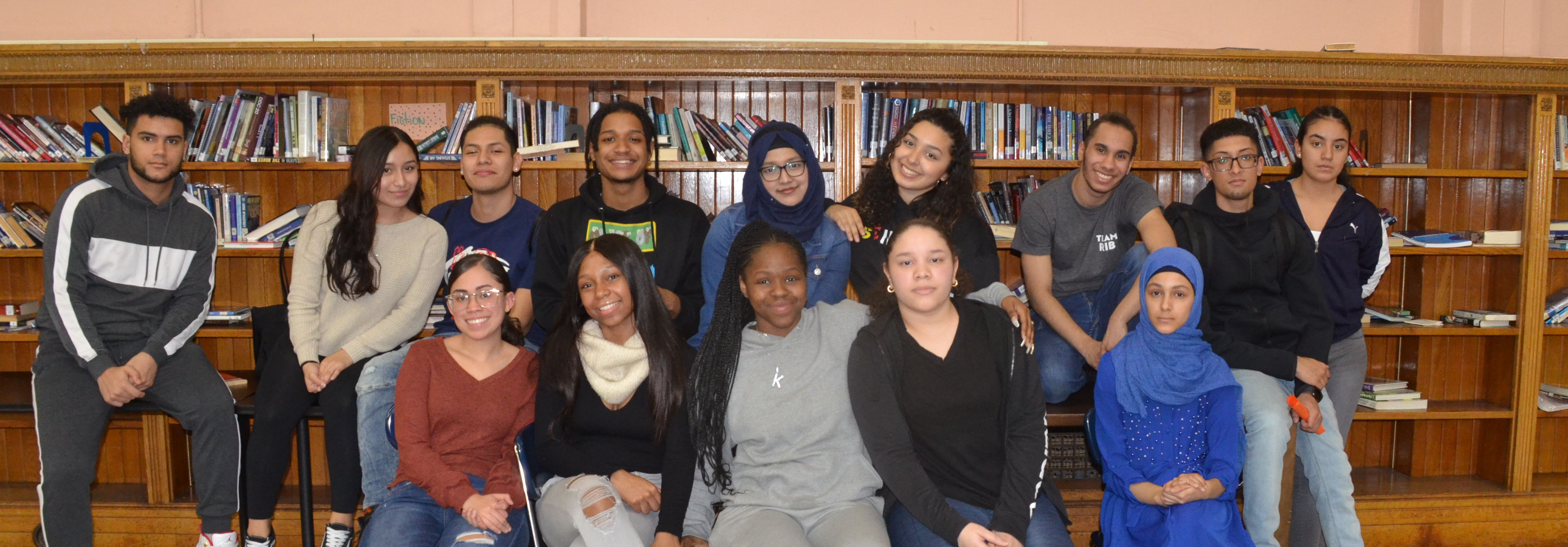In schools across the country, Black students are suspended and expelled at a rate three times greater than white students – and that tragic reality drives the school-to-prison pipeline.
We realized that our longstanding focus on building relationships and on fostering social and emotional learning and bias awareness in both young people and adults complements and helps set the stage for explicit conversations on race with school staff—conversations that could lead to fewer suspensions and more equitable classrooms and schools. We saw that by combining SEL, restorative practices (including conflict resolution), and a focus on racial equity, we might just be able to “crack the nut” of racial disparities in discipline. In the process, we could help schools become more kind, caring, and just.
In 2016, we received a four-year, federal Investing in Innovation (i3) grant to create a model for “Whole School Racial Equity” and test it in NYC public schools, in collaboration with researchers from Rutgers University and with critical support from the Einhorn Family Charitable Trust.
We are now in the second phase of this 4-year grant, which involves a close partnership with nine public schools (elementary, middle and high schools) in Brooklyn’s District 19. Tala Manassah, Deputy Executive Director, and the project’s leader says:
The Whole School Racial Equity project is giving us the resources we need not just to crack a single pernicious problem in education, but also to innovate and substantially deepen all of Morningside Center’s work, and to help us chart what that work should be in this new decade.
Schools should be places where children’s natural curiosity is nurtured and protected. They should be places where the inherent love of learning that each young mind has can blossom, and where the development of children’s minds, bodies, emotions, and personhood brings and reinforces the inherent joy of learning by affirming each child’s specialness and worth.
We recognize that to accomplish this we need a well-coordinated and multi-faceted toolkit that considers and integrates history, pedagogy, trauma, culturally sustaining practices, self and community care practices, and concrete strategies for developing and sustaining relational trust.
We are piloting a model that integrates aspects of all of these crucial tools, which we will then share with the field. The project has been transformational for our organization, and I believe that as we keep developing the approach, it will also have positive impact that goes beyond us—our project is part of a movement.
Each participating school has direct and ongoing support from two Morningside Center staff people: a staff developer and a principal coach (a retired principal). In each school, our staff developer is supporting the overall implementation of the project, working with the school leadership team and school staff to help plan the effort and provide direct training and support.
As our staff developers and principal coaches support schools in integrating our Whole School Racial Equity model from top to bottom, Dr. Anne Gregory of Rutgers University and her team are conducting a randomized control trial that will assess the impact of the project on these nine schools compared to nine control schools.
The work is exciting, intense, and challenging. We are learning and improving the model as we go based on the insights and experiences of our team of i3 staff developers, who meet every two weeks with Tala and other Morningside staff. A key learning this past year: Educators need more direct, practical support early on in incorporating equitable practices into their classrooms—everything from welcoming students by name and calling on them randomly to connecting course content to students’ lives.

Every i3 school has its own story. For instance, at Cypress Hills Collegiate Preparatory High School (whose students are pictured above), students themselves are leading the way, with training and support from our staff developer Lauren Neidhardt.
Every Wednesday, two or three “peer leaders” (juniors and seniors) facilitate circles for students throughout the school. In a recent freshman circle, peer leaders planned and co-facilitated a session in which students shared their feelings about the stress they are under academically and their strategies for handling it.
Circles have also helped strengthen relationships between students and their teachers. As trust has deepened, Lauren has watched teachers increasingly open up to students’ ideas and initiatives.
The student circle-keepers came up with the idea of having a monthly lunch together (structured as a community-building circle) to support each other in their work. “They feel empowered,” says Lauren.
"Youth leadership is key to the vision of our Whole School Racial Equity approach," says Tala. “We want young people to take what they are learning out into the world—and help make it a more equitable, just, and joyful place.”
Read more of our 2019 Annual Report
